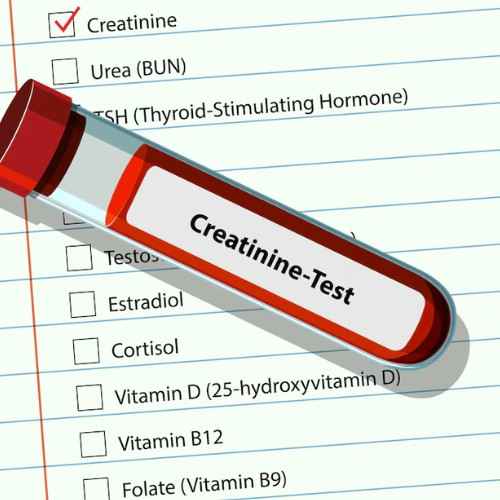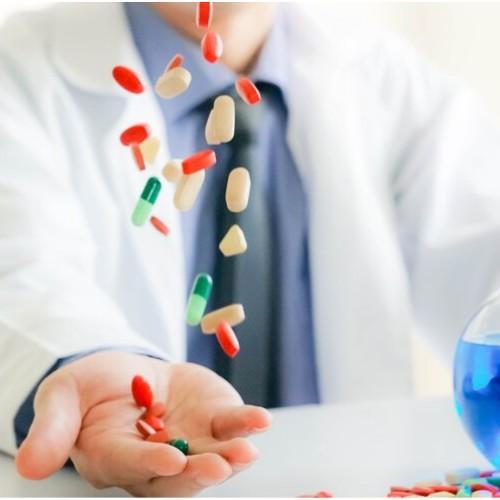Is a Creatinine Level of 9 Dangerous? Understanding What It Means for Your Health
Now, let’s get real; medical reports can be terrifying, particularly when a number is “too” high or low. A number such as this, which is routinely flagged as too high, is creatinine. If you, or someone you care about, recently had a blood test show that their creatinine level is 9 mg/dL, it's natural to be concerned or confused. So, what does it mean? Is a creatinine level 9 dangerous?
What is Creatinine?
Creatinine is a waste product produced by muscle wear and tear. Your muscles provide this energy from a compound called creatine. Creatinine is what remains when creatine is broken down. That waste is picked up by your blood and carried to your kidneys, which filter out the waste and remove it from your body as urine.In a regular human, this system is oiled. But when kidneys are not functioning well, they can’t filter creatinine effectively. That is when levels of creatinine in the blood begin to rise.

What’s a Normal Creatinine Level?
In general, normal creatinine levels vary a bit depending on age, gender, body size, and muscle mass. But here’s a rough guide:
-
Men: 0.7 to 1.3 mg/dL
-
Women: 0.6 to 1.1 mg/dL
-
Children: Even lower
So, a level of 9 mg/dL is significantly elevated. It’s well above the normal range, and it typically suggests severe kidney dysfunction or failure.
Serum Creatinine 9 Risks
A creatinine level of 9 is considered dangerous. It usually indicates that the kidneys are functioning at a very low level, and this could point to Stage 5 chronic kidney disease (CKD), also known as end-stage renal disease (ESRD).
At this stage, your kidneys are operating at less than 15% of their normal function. This means they are not effectively removing waste or maintaining the balance of fluids and electrolytes in your body. If left unmanaged, it can lead to:
-
Severe fluid retention
-
Buildup of toxins in the blood
-
Dangerous electrolyte imbalances (like high potassium, which can cause heart issues)
-
Fatigue, confusion, and even seizures
-
Life-threatening complications
So yes, it’s serious. But here's something important: a high creatinine level doesn’t automatically mean all hope is lost. It’s a warning signal, a loud one, that tells you it's time to take action.
Is Creatinine 9 Kidney Failure?
Yes, almost close to that. If your creatinine levels have reached 9, that means you are at stage 5 CKD, which demands either a transplant or dialysis.
Reasons for Creatinine Level 9
There are several reasons why creatinine might rise this high. Some of the common causes include:
-
Chronic Kidney Disease (CKD): This is a gradual loss of kidney function over time, often due to diabetes, high blood pressure, or other underlying conditions.
-
Acute Kidney Injury (AKI): A sudden decline in kidney function, possibly from dehydration, infection, medications, or toxins.
-
Severe dehydration: Sometimes, a lack of fluids can temporarily spike creatinine levels.
-
Obstruction of urinary flow: Such as from kidney stones or an enlarged prostate.
-
Certain medications or supplements: Some drugs and herbal remedies can be harmful to the kidneys if taken improperly.
Understanding the root cause is key to deciding the next steps.

Managing Creatinine Level 9
The first step is not to panic, but also not to delay. You’ll need to work closely with a healthcare provider or nephrologist (a kidney specialist) to understand your condition and treatment options. Here’s what might be involved:
-
Further Testing: Blood work, urine tests, and imaging like ultrasounds or CT scans may help pinpoint the cause and extent of kidney damage.
-
Treat the Underlying Condition: Whether it’s diabetes, high blood pressure, an infection, or an obstruction, addressing the root cause is essential.
-
Lifestyle Adjustments: A kidney-friendly diet, hydration, and avoiding harmful substances (like NSAIDs or excess salt) can help manage the load on your kidneys.
-
Medications: These might be prescribed to control blood pressure, blood sugar, or electrolyte levels.
-
Dialysis: If your kidneys are no longer able to do their job, dialysis may be necessary to filter your blood.
-
Transplant: In cases of complete kidney failure, a transplant may be considered if you’re a candidate.
What Happens at Creatinine Level 9?
A creatinine level of 9 is high and is a marker of severe kidney damage or even kidney failure. At this stage, symptoms can get serious, and dialysis or immediate medical care is often the last resort.
Can Creatinine Levels Be Lowered Naturally?
In cases of acute kidney injury or milder kidney issues, creatinine can sometimes be reduced by treating the underlying problem and making healthy lifestyle changes. However, when levels reach 9, it often reflects advanced kidney damage, and natural remedies alone may not be sufficient.
That said, certain supportive measures may help:
-
Eating a kidney-friendly diet: Low in sodium, protein, and phosphorus
-
Staying well-hydrated (unless you’ve been told to restrict fluids)
-
Avoiding nephrotoxic drugs and herbs
-
Exploring integrative therapies like Ayurveda or Traditional Chinese Medicine, under professional guidance
Always consult your healthcare provider before trying any alternative treatments, especially at such high creatinine levels.
Final Thoughts: Is 9 Creatinine Level Dangerous?
Seeing a creatinine level 9 on your lab report is scary, and it's okay to feel overwhelmed. But this number doesn’t define you; it’s simply a marker that your body needs help. The good news? With timely medical care, proper management, and lifestyle changes, many people with advanced kidney issues continue to live meaningful lives.
If you or someone you love is facing this challenge, don’t hesitate to reach out to a nephrologist. Education, action, and support can go a long way in improving outcomes. Your health journey doesn’t stop here; it just needs a new direction.






